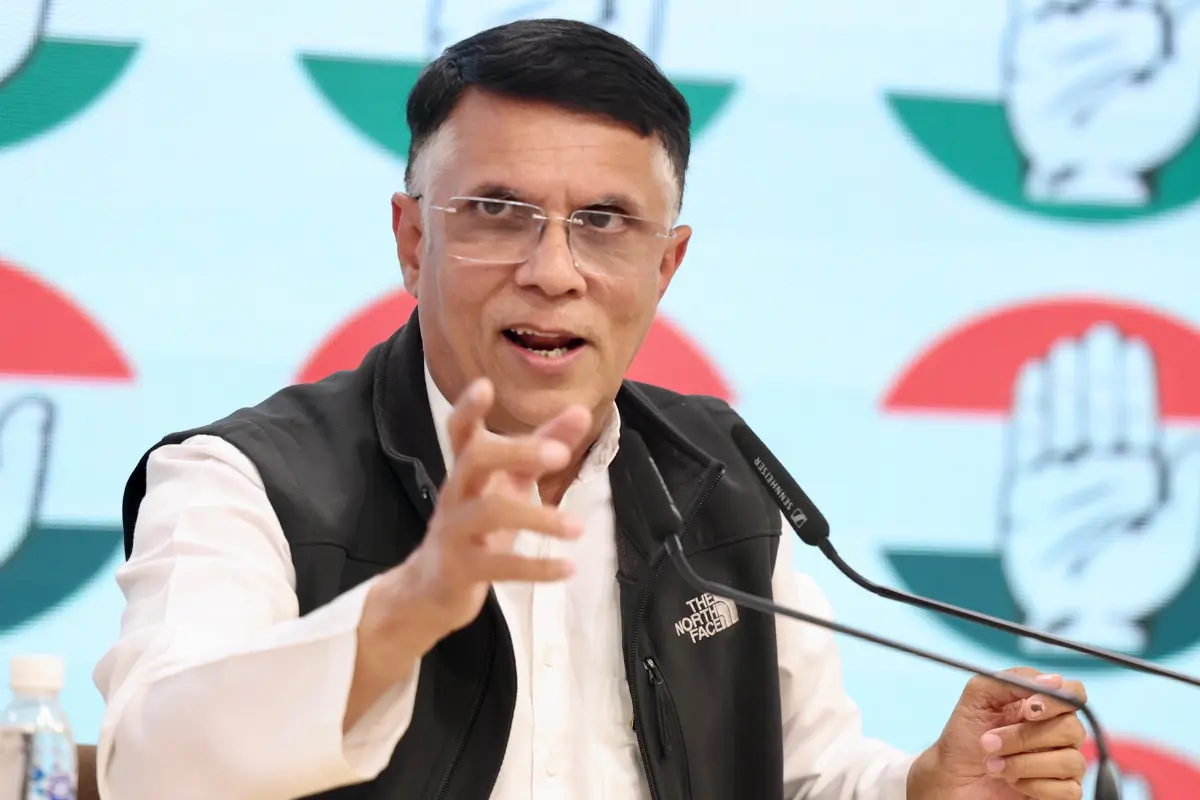New Delhi: Senior Congress leader Pawan Khera raised concerns over the Modi government’s diplomatic handling of India’s strategic interests following the United States’ decision to allocate $397 million for the maintenance of Pakistan’s F-16 fighter fleet.
Taking to social media, Khera pointed out that this is not an isolated instance, recalling that the Biden administration had sanctioned $450 million in 2022 for the same purpose, highlighting a pattern of U.S. military support to Pakistan.
“Such actions potentially compromise India’s security interests, especially given the historical use of F-16s by Pakistan against India,” he stated.
Drawing a sharp contrast, Khera emphasized that during the UPA years (2004–2014), India and the United States significantly deepened their strategic and defense cooperation across multiple domains, including military modernization, technology transfer, nuclear energy, and counter-terrorism.
He highlighted, “A landmark achievement was the Indo-U.S. Civil Nuclear Deal, which lifted a three-decade U.S. ban on nuclear trade with India, allowing access to civilian nuclear technology and fuel from the U.S. and other Nuclear Suppliers Group (NSG) countries, thereby strengthening India’s energy security and global standing.”
He also mentioned the Defense Framework Agreement (2005), saying, “The Defense Framework Agreement created a roadmap for expanded defense cooperation, leading to major defense acquisitions such as the C-130J Super Hercules transport aircraft (2008, $1 billion for six aircraft), enhancing India’s strategic airlift capabilities, and the C-17 Globemaster III (2011, agreement for 10 aircraft), which improved India’s rapid deployment capabilities.”
“India also became the first international customer of the P-8I Poseidon maritime surveillance aircraft (2009). Counter-terrorism cooperation deepened, especially after the 26/11 Mumbai attacks (2008), with the U.S. providing intelligence on Pakistan-based terror groups like Lashkar-e-Taiba, leading to closer collaboration on counter-terrorism efforts,” he further added.
“Under the UPA, bilateral defense trade grew from negligible levels in 2004 to approximately $9 billion by 2014, making India one of the largest buyers of U.S. military equipment.”
“The India-U.S. Strategic Dialogue (2010) institutionalized high-level engagements in security, trade, and technology, ensuring that the partnership remained dynamic and multifaceted.”
Khera further asserted that “the robust diplomatic and strategic initiatives taken during the UPA years deepened India-U.S. relations, strengthening India’s defense capabilities and global influence.” He stressed that the Congress party has championed a balanced and proactive foreign policy, fostering non-alignment along with strategic autonomy.
Khera also raised concerns over recent defense negotiations, particularly regarding India’s proposed acquisition of F-35 fighter jets from the U.S., which has been met with skepticism. He cited Tesla and SpaceX CEO Elon Musk’s remark labeling the F-35 as ‘junk,’ questioning its efficacy. Additionally, he pointed out that Russia has offered to produce its advanced Su-57 jets in India, presenting what he described as a “potentially more viable alternative.”
In light of these developments, Khera posed critical questions to the Modi government:
“Is there a comprehensive plan to address the implications of U.S. military aid to Pakistan?”
“How does the government intend to ensure that India’s security concerns are not sidelined in the pursuit of high-value defense procurements?”
Concluding his statement, Khera asserted, “A reassessment of our foreign policy priorities, drawing from the Congress party’s legacy of strategic foresight, is essential to safeguarding national interests.”











